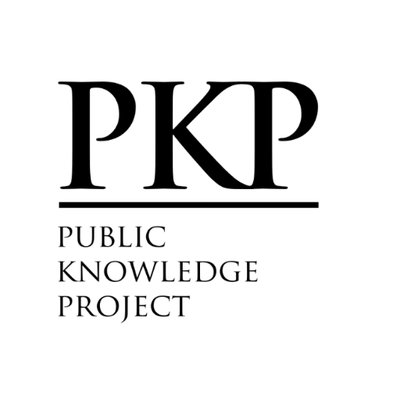Corporate Social Responsibility Disclosure and Corporate Values: the moderation effect of Profitability
Case of Indonesia
DOI:
https://doi.org/10.59051/joaf.v12i2.482Keywords:
CSR Disclosure, enterprise value (Tobin’s Q), profitability (ROE)Abstract
Objective: This research aimed to examine whether corporate social responsibility disclosure affects corporate values by using profitability as a moderating variable, and to examine the aspects of CSR disclosure that were most widely disclosed by companies. The CSR index measurement used 91 items which were divided into 3 categories, namely economic, environmental, and social categories.
Methods: The regression test used in this research was multiple linear regression using Moderated Regression Analysis (MRA) to determine the effect of CSR disclosure on corporate values, with profitability as the moderating variable.
Originality: The originality of this research was to identify the CSR categories that were mostly disclosed by companies in Indonesia, and to identify whether CSR disclosure could increase company value, especially in developing countries where the fulfillment of disclosure obligations was still low.
Results: The results of the analysis showed that the disclosure of Corporate Social Responsibility disclosure had no effect on corporate values, and profitability could be a moderating variable to increase the effect of CSR disclosure on corporate values. The most widely disclosed CSR category was the social category, and every year CSR disclosure has increased.
Theoritical Contributions: This research used signal theory to explain the effect of CSR disclosure on corporate values.
Social/management contributions: CSR disclosure had no affect on the value of the company because it was still not maximally fulfilling the obligation to disclose social responsibility, and the financial factor such as profit was still the focus of determining the value of the company which was a positive signal for investors.
Downloads
References
Barbu, E. M., Dumontier, P., Feleag_a, N., & Feleag_a, L. (2014), “Mandatory environmental disclosures by companies complying with IASs/IFRSs: The cases of France, Germany, and the UK”. The International Journal of Accounting, 49(2), 231–247. https://doi.org/10.1016/j.intacc.2014.04.003
Clarkson, P.M., Li, Y., Richardson, G.D., Vasvari, F.P. (2008). “Revisiting the relation between environmental performance and environmental disclosure: An empirical analysis”. Accounting, Organizations and Society, 33(4), 303–327.
Clarkson, P.M., Li, Y., Richardson, G.D., Vasvari, F.P. (2011). “Does it really pay to be green? Determinants and consequences of proactive environmental strategies”. Journal of Accounting and Public Policy, 30(2), 122–144.
Chung, C. Y., Sangjun J., Jason Y. (2018), “Do CSR Activities Increase Firm Value? Evidence from the Korean Market”. Sustainability, 10, 3164; doi:10.3390/su10093164
Coffie, W., Aboagye-Otchere, F. Musah, A. (2018). "Corporate social responsibility disclosures (CSRD), corporate governance and the degree of multinational activities: Evidence from a developing economy", Journal of Accounting in Emerging Economies, Vol. 8 No. 1, pp. 106-123. https://doi.org/10.1108/JAEE-01-2017-0004
El Ghoul,S., Omrane G., Chuck C.Y.K., Dev R.M., (2011), “Does corporate social responsibility affect the cost of capital?”, Journal of Banking & Finance, Volume 35, Issue 9, 2388-2406 https://doi.org/10.1016/j.jbankfin.2011.02.007
Gerged, Ali M., Eshani B., Christopher J. C. (2020), “Is corporate environmental disclosure associated with firm value? A multicountry study of Gulf Cooperation Council firms”. Business Strategy and Environment. 2020;1–19.DOI: 10.1002/bse.2616.
Gerged, A. M., Cowton, C. J., Beddewela, E. S. (2018), “Towards sustainable development in the Arab Middle East and North Africa region: A longitudinal analysis of environmental disclosure in corporate annual reports”. Business Strategy and the Environment, 27(4), 572–587. https://doi.org/10.1002/bse.2021
Hart, S.L. (1995). “A natural resource based view of the firm”. Academy of Management Review, 20(4), 986–1014.
Hersugondo, Ana P., Siska N, Udin. (2019), “Corporate Social Responsibility and Corporate Value: Evidence from an Emerging Economy, Indonesia”, Quality Management, Vol. 20, No. 172, pp. 51-55
Ho, Li-Chin Jennifer, Marthin E. Taylor. (2007), “An Empirical Analysis of Triple Bottom-Line Reporting anda its Determinants: Evidence from the United States anda Japan”, Journal of International Financial Management and Accounting, Vol. 18, No. 2, pp. 123-150, https://doi.org/10.1111/j.1467-646X.2007.01010.x
Ilmi , M., Alwan Sri K., Yosefa S., (2017), “Effect Of Good Corporate Governance, Corporate Social Responsibility Disclosure And Managerial Ownership To The Corporate Value With Financial Performance As Intervening Variables: Case On Indonesia Stock Exchange”. International Journal of Social Science and Business. Vol.1 (2) pp. 75-88
Laili, C. N., Atim D., Nur K. I. (2019). “The Influence of Corporate Governance, Corporate Social Responsibility, Firm Size on Firm Value: Financial Performance as Mediation Variable”. Jurnal Aplikasi Manajemen”, 17, 1, 179–186. http://dx.doi.org/10.21776/ub.jam.2019.017.01.20
Lys, T. James P.N., Clare W. (2015). “Signaling through corporate accountability reporting”. Journal of Accounting and Economics 60, 56–72. https://doi.org/10.1016/j.jacceco.2015.03.001
Malik, M.S., Kanwal, L. (2018), “Impact of Corporate Social Responsibility Disclosure on Financial Performance: Case Study of Listed Pharmaceutical Firms of Pakistan”. Journal of Business Ethics 150, 69–78 . https://doi.org/10.1007/s10551-016-3134-6
Matisoff, D. C., Noonan, D. S., & O'Brien, J. J. (2013), “Convergence in environmental reporting: Assessing the Carbon Disclosure Project”. Business Strategy and the Environment, 22(5), 285–305. https://doi.org/10.1002/bse.1741
Qiu, Y. Shaukat, & A. Tharyan, R. (2016). “Environmental and social disclosures: Link with corporate financial performance”. The British Accounting Review, 48(1), 102-116.
Russo, M.V., Fouts, P.A. (1997). “A resource-based perspective on corporate environmental performance and profitability”. Academy of Management Journal,40(3), 534–559
Ross, Stephen A. (1977), “The Determination of Financial Struktur: The Incentive - Signalling Approach”, The Bell Journal of Economics, Vol. 8, No, 1, pp. 23.40.
Shahab, Y., Ntim, C. G., Chengang, Y., Ullah, F., & Fosu, S. (2018), “Environmental policy, environmental performance and financial distress in China: Do top management team characteristics matter?” Business Strategy and the Environment, 27(8), 1635–1652. https://doi.org/10. 1002/bse.2229
Sustainability Reporting in Asean Countries Indonesia, Malaysia, Phillipines, Singapore dan Thailand, 2018, ASEAN CSR NEtworks
Su, Weichieh, Mike W. P., Weiqiang T., Yan-Leung C., (2016) "The Signaling Effect of Corporate Social Responsibility in Emerging Economies," Journal of Business Ethics, , vol. 134(3), 479-491. https://doi.org/10.1007/s10551-014-2404-4
Willim, A.P., Andreas, L., Wendy. (2020), ”Analysis of Impact Implementation of Corporate Governance and Corporate Social Responsibility on Corporate Value in Banking Sector with Net Profit Mar- gin and Management Quality as Moderating Variables”, International Journal of Multicultural and Multireligious Understanding, Vol. 7, Issue 4, pp. 116-124 http://dx.doi.org/10.18415/ ijmmu.v7i4.1579
Downloads
Published
How to Cite
Issue
Section
License
Copyright (c) 2021 Irine Herdjiono, Nikita Utami Ture

This work is licensed under a Creative Commons Attribution-NonCommercial-NoDerivatives 4.0 International License.
Authors who publish with this journal agree to the following terms:
- Authors retain copyright and grant the journal right of first publication with the work simultaneously licensed under a Creative Commons Attribution License that allows others to share the work with an acknowledgement of the work's authorship and initial publication in this journal.
- Authors are able to enter into separate, additional contractual arrangements for the non-exclusive distribution of the journal's published version of the work (e.g., post it to an institutional repository or publish it in a book), with an acknowledgement of its initial publication in this journal.
- Authors are permitted and encouraged to post their work online (e.g., in institutional repositories or on their website) prior to and during the submission process, as it can lead to productive exchanges, as well as earlier and greater citation of published work (See The Effect of Open Access).






















